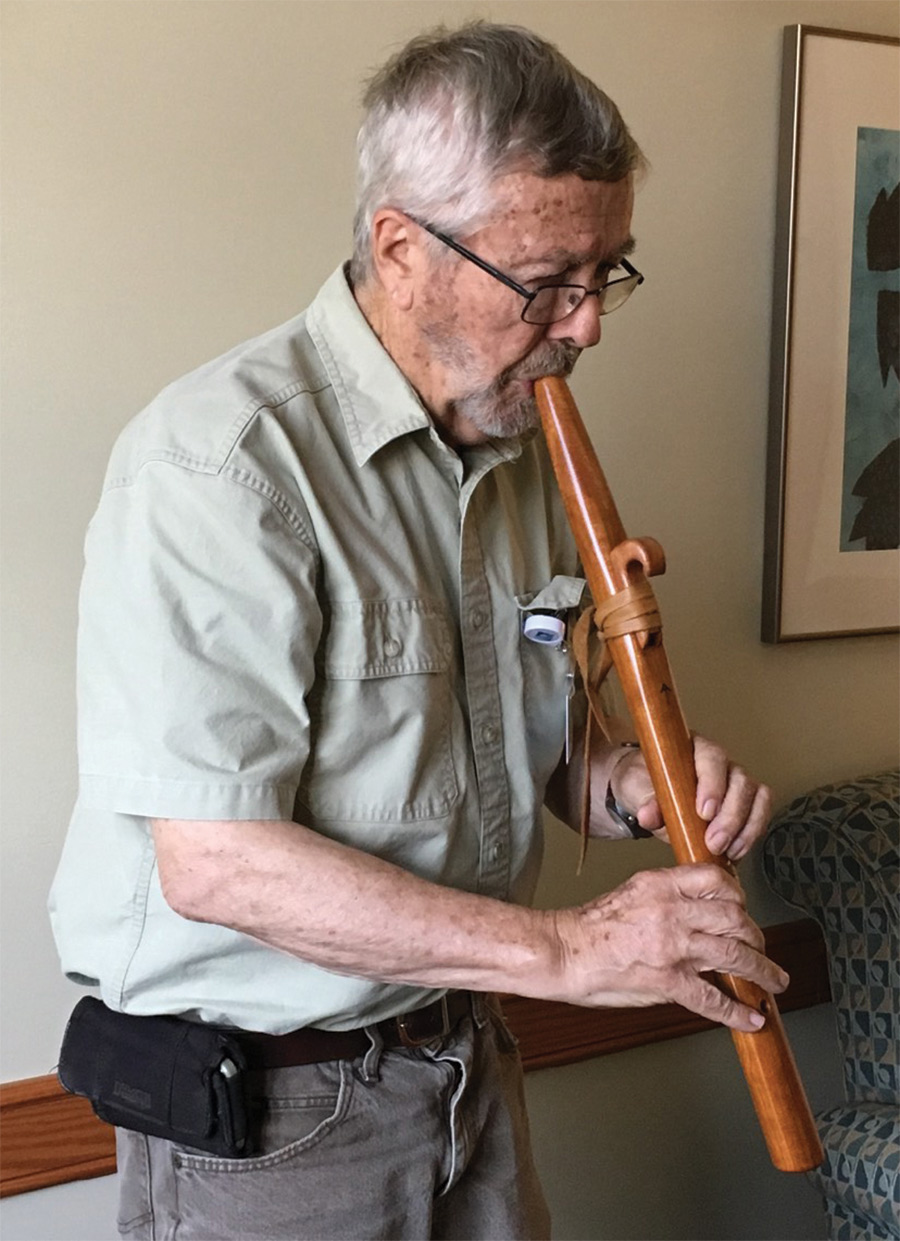through music
After her death, LaRue decided that he wanted to give back to other patients and families by playing music at the same hospice. The only problem was that he couldn’t play an instrument or read music. He had almost given up when he stumbled upon a store that sold Native American flutes.
The Native American flute was a simple instrument with two chambers and a set of hollow finger holes. LaRue had struggled to learn how to play other instruments, but finding this flute, it turned out, was kismet. “It was just a matter of playing it and playing it until I felt comfortable,” says the retired minister and sustainable builder who majored in philosophy and religion at Bucknell.

“The flute has this mysterious and beautiful effect on people,” he says. “It allows them to feel they can be emotional and let go.”